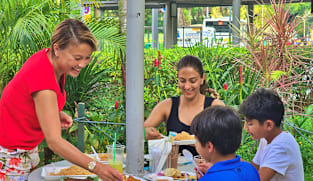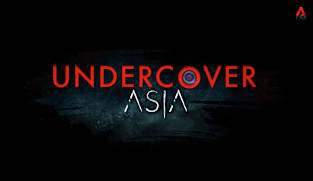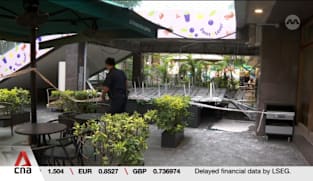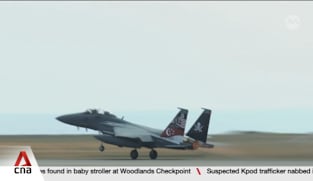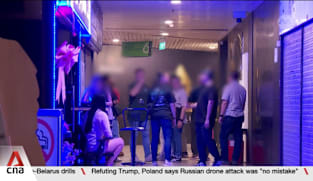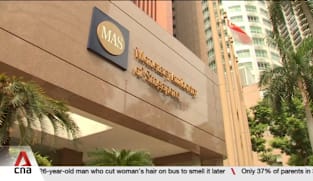Gerald Giam on Israel-Hamas conflict
The Workers’ Party calls for an immediate humanitarian truce, protection of civilians and aid workers, direct humanitarian access, the swift release of hostages and a return to negotiations towards a two-state solution for the Israelis and Palestinians. MP Gerald Giam stated his party’s position in Parliament on Monday (Nov 6). He said the killing of people in Israel and hostage-taking by Hamas cannot be justified and must be unequivocally condemned. However, the ensuing retaliation by Israel in the Gaza Strip demands critical scrutiny and a response from the international community, including Singapore, he added. Mr Giam said the right to self-defence must be wielded within the bounds of international humanitarian law. He pointed out that Israel was successful in securing its border with Gaza within days of the assault, but it continues to destroy civilian infrastructure, displace hundreds of thousands of people, and cut off water and electricity. Mr Giam said Israel must recognise that such a response will only breed further hatred among the Palestinian population and provide fuel for extremists in Gaza and around the world. Proportionality, distinction and necessity must guide its military actions, he said. On its part, Hamas must immediately and unconditionally release the hostages. Failure to do so will only prolong the war and lead to a greater loss of life and “hardening of hearts” on both sides. Mr Giam said Singapore must do everything within its capacity, working alongside countries in the region and international agencies, to deliver essential humanitarian aid. It can also contribute to post-conflict reconstruction and development by offering more technical assistance to the Palestinians. Singapore should also work with like-minded partners to help establish the foundations for enduring peace between the Israelis and Palestinians and the implementation of the two-state solution. It should seek opportunities to facilitate greater dialogue between all stakeholders, including hosting high-level summits away from the conflict zone. Mr Giam stressed the need for a more balanced and humane approach in shaping Singapore’s collective voice on the conflict. He said it is imperative to guard against the spread of misinformation and disinformation. This will help to keep the discourse rational and focused on the welfare of innocent civilians in Israel and Palestine. Mr Giam said political debate in Parliament, classrooms or at Speakers' Corner provides Singaporeans with safe avenues to express their views and engage in discussions about international conflicts. They also provide a crucial “pressure release valve” and help to prevent individuals from becoming overly influenced by extreme rhetoric from foreign sources. Suppressing political debates does not prevent extremism, he said. Rather, it could lead to the debate being driven into radicalised corners of the Internet, where the real danger lies, he added. Mr Giam noted that arguments against greater public debate have often cited concerns about the general lack of understanding surrounding the complex Israeli-Palestinian conflict. He wanted to know what steps are being taken to deepen Singaporeans’ understanding of the conflict. He urged schools and the Institutes of Higher Learning to actively promote classroom discussions so that young people can voice their perspectives and express their frustrations, as well as respect different viewpoints. It is essential to make the effort to understand its nuances so as to foster rational and informed public discussions, he added.
The Workers’ Party calls for an immediate humanitarian truce, protection of civilians and aid workers, direct humanitarian access, the swift release of hostages and a return to negotiations towards a two-state solution for the Israelis and Palestinians. MP Gerald Giam stated his party’s position in Parliament on Monday (Nov 6). He said the killing of people in Israel and hostage-taking by Hamas cannot be justified and must be unequivocally condemned. However, the ensuing retaliation by Israel in the Gaza Strip demands critical scrutiny and a response from the international community, including Singapore, he added. Mr Giam said the right to self-defence must be wielded within the bounds of international humanitarian law. He pointed out that Israel was successful in securing its border with Gaza within days of the assault, but it continues to destroy civilian infrastructure, displace hundreds of thousands of people, and cut off water and electricity. Mr Giam said Israel must recognise that such a response will only breed further hatred among the Palestinian population and provide fuel for extremists in Gaza and around the world. Proportionality, distinction and necessity must guide its military actions, he said. On its part, Hamas must immediately and unconditionally release the hostages. Failure to do so will only prolong the war and lead to a greater loss of life and “hardening of hearts” on both sides. Mr Giam said Singapore must do everything within its capacity, working alongside countries in the region and international agencies, to deliver essential humanitarian aid. It can also contribute to post-conflict reconstruction and development by offering more technical assistance to the Palestinians. Singapore should also work with like-minded partners to help establish the foundations for enduring peace between the Israelis and Palestinians and the implementation of the two-state solution. It should seek opportunities to facilitate greater dialogue between all stakeholders, including hosting high-level summits away from the conflict zone. Mr Giam stressed the need for a more balanced and humane approach in shaping Singapore’s collective voice on the conflict. He said it is imperative to guard against the spread of misinformation and disinformation. This will help to keep the discourse rational and focused on the welfare of innocent civilians in Israel and Palestine. Mr Giam said political debate in Parliament, classrooms or at Speakers' Corner provides Singaporeans with safe avenues to express their views and engage in discussions about international conflicts. They also provide a crucial “pressure release valve” and help to prevent individuals from becoming overly influenced by extreme rhetoric from foreign sources. Suppressing political debates does not prevent extremism, he said. Rather, it could lead to the debate being driven into radicalised corners of the Internet, where the real danger lies, he added. Mr Giam noted that arguments against greater public debate have often cited concerns about the general lack of understanding surrounding the complex Israeli-Palestinian conflict. He wanted to know what steps are being taken to deepen Singaporeans’ understanding of the conflict. He urged schools and the Institutes of Higher Learning to actively promote classroom discussions so that young people can voice their perspectives and express their frustrations, as well as respect different viewpoints. It is essential to make the effort to understand its nuances so as to foster rational and informed public discussions, he added.








